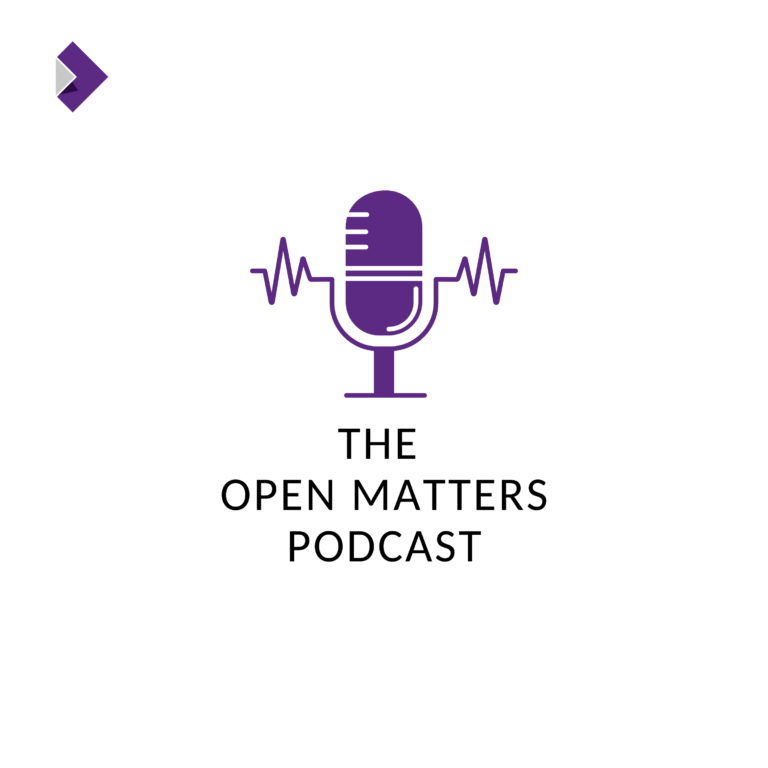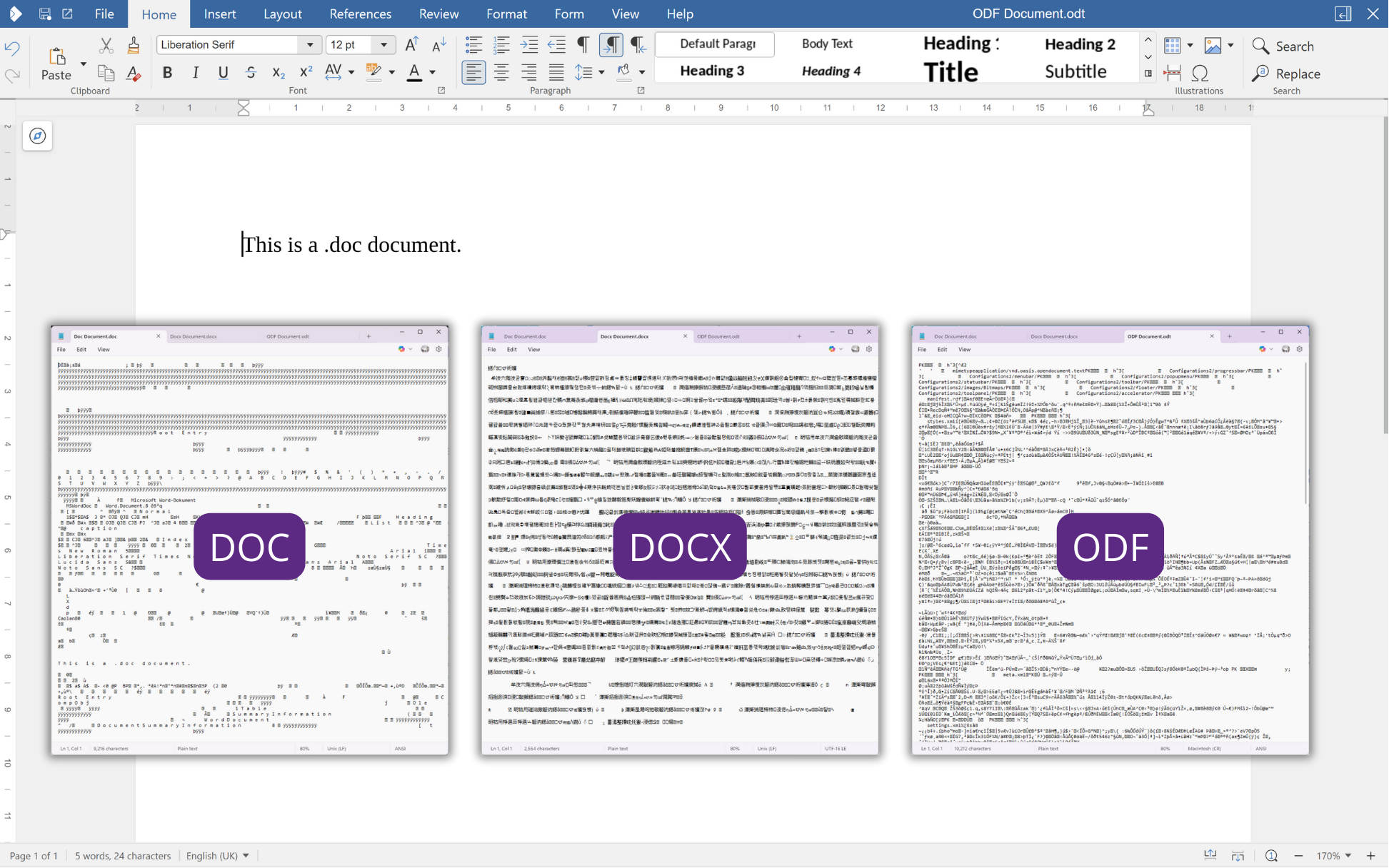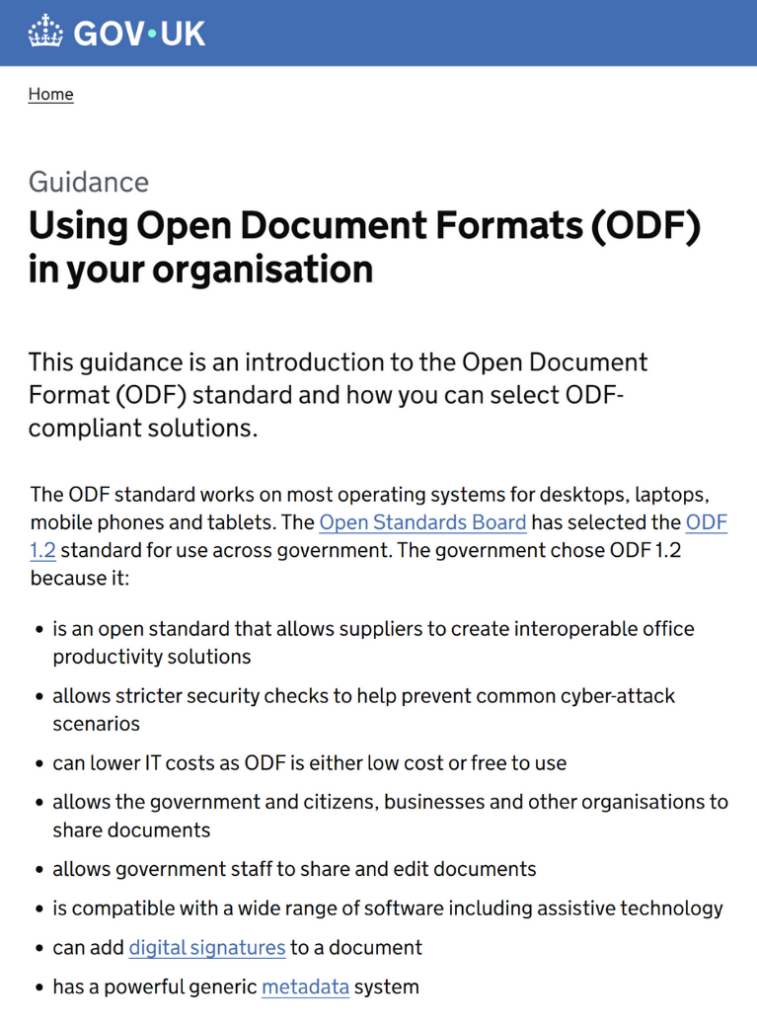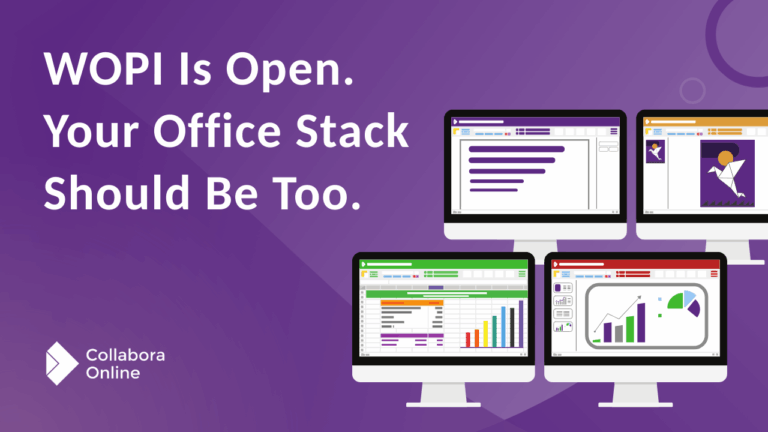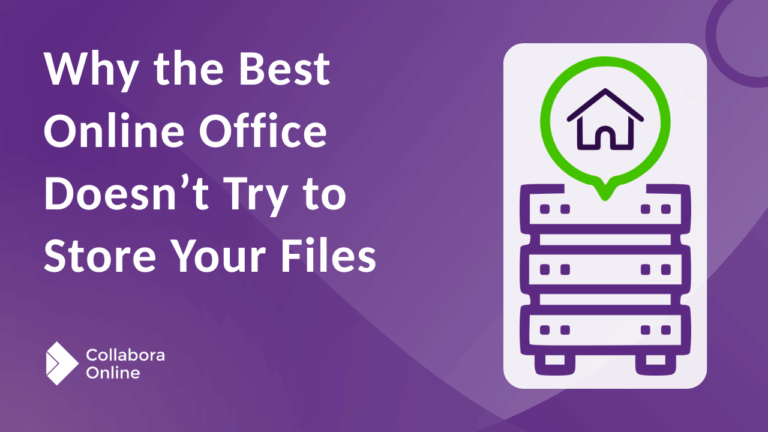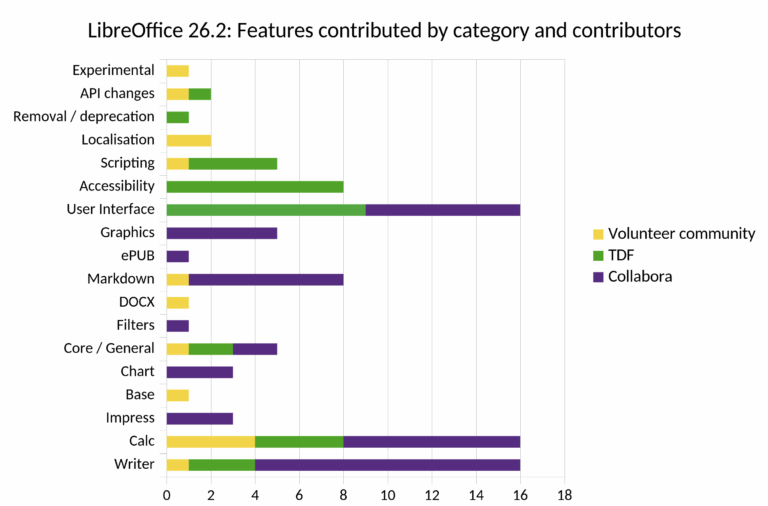Save As?
TL;DR
When you click “Save As” in your favourite word processor, you probably don’t think too much about the file format. Yet file formats like .doc, .docx, and .odt shape how we create and share documents—but they can also create headaches. Here’s a quick guide to their history, differences, and why Collabora Online makes working across them easier.
Related content:
From Closed and Binary, To Open and Extensible
The earliest digital files were of course just plain text – a simple sequence of characters, and no formatting. Writers used to all the flexibility of pen and paper however quickly wanted more: bold headings, paragraph spacing, indents, embedded images, at this point the list is almost endless. This led to the evolution of file formats storing much more than the mere ‘text’ of a file. Binary formats such as WordStar “Document” files (introduced 1978 – interestingly WordStar files had no official file extension, files were either “Documents” with formatting, or “Nondocuments” pure ASCII text files), or Microsoft’s .doc (1983) took over the word-processing space. Compact and efficient for older systems, binary formats also locked users into specific software, making it difficult to share documents across platforms.
Above: What’s going on under the hood?! The same document saved 3 ways
By the 1990s, Microsoft Word dominated the market, cementing .doc as the “default” document format worldwide.
The next big shift came with XML-based formats – more verbose, but human-readable and compressible. The open-source community were the first to develop the Open Document Format (ODF) in 2005, designed to prioritise openness, readability, and extensibility. Microsoft soon followed suit with their own OOXML files such as .docx in 2007, while ODF continued as the ISO-standardised alternative.
Whereas binary .doc files were proprietary containers that embedded program-specific data structures directly, ODF and .docx files are zip archives full of multiple XML and media files, making them easier to parse, extend, and standardise than their opaque binary predecessors. You can think of .doc as a box not only locked, but also containing pages of Egyptian hieroglyphs – only Microsoft held the key and translation documentation, and they were unwilling to share. ODF files (and largely .docx*) on the other hand are transparent zip files written in your language. You can open them, inspect the contents, and tweak them as much as you like.
*Reality check on OOXML
There’s no smoking gun that .docx was engineered to be opaque. However, OOXML’s sheer breadth, the long-standing default use of the “Transitional” profile, and historical standardisation controversies have raised questions and interoperability costs for alternative suites putting a question mark over some of the claims to being an ‘open’ format.
In practice, this means that while .docx is technically an open standard, third-party developers often face hurdles when trying to implement full compatibility.
Don’t change formats while editing?
For open standards and long-term access, ODF (.odt, .ods, .odp) is ideal. As an interesting case study, and illustrating the benefits, many governments now mandate the use of open file formats as the “standard for use across government”.
There are many reasons for this, but they essentially boil down to making sure you have full control over your documents – and avoiding the technical and financial dangers associated with proprietary technology. Essentially if you are relying entirely on one proprietary company for your file format standards, document editing software, and perhaps even cloud storage, it could be argued you’re asking for vendor lock-in problems, with future migration or even simple access becoming costly.
Legacy proprietary formats (such as .doc or .rtf) which are no longer actively developed should be avoided. In the future, if not already, they will be increasingly difficult to work with (have you tried to preserve formatting while opening Microsoft Works .wps or .xlr file in a modern document editor recently?).
The elephant in the room is what to do with .docx, .xlsx, and .pptx files. As proprietary formats, they carry the same long-term risks as .doc or .wps – future deprecation, compatibility gaps, or costly migration. Yet in a world dominated by Microsoft, ignoring them would be impractical. The safest approach today is to continue using these modern proprietary formats (without conversion) with existing files, but to prefer open formats (ODF) for creating new content. This strategy minimises the danger of future lock-in and preserves your freedom to move documents between systems without technical or financial obstacles.
What about Document Editors?
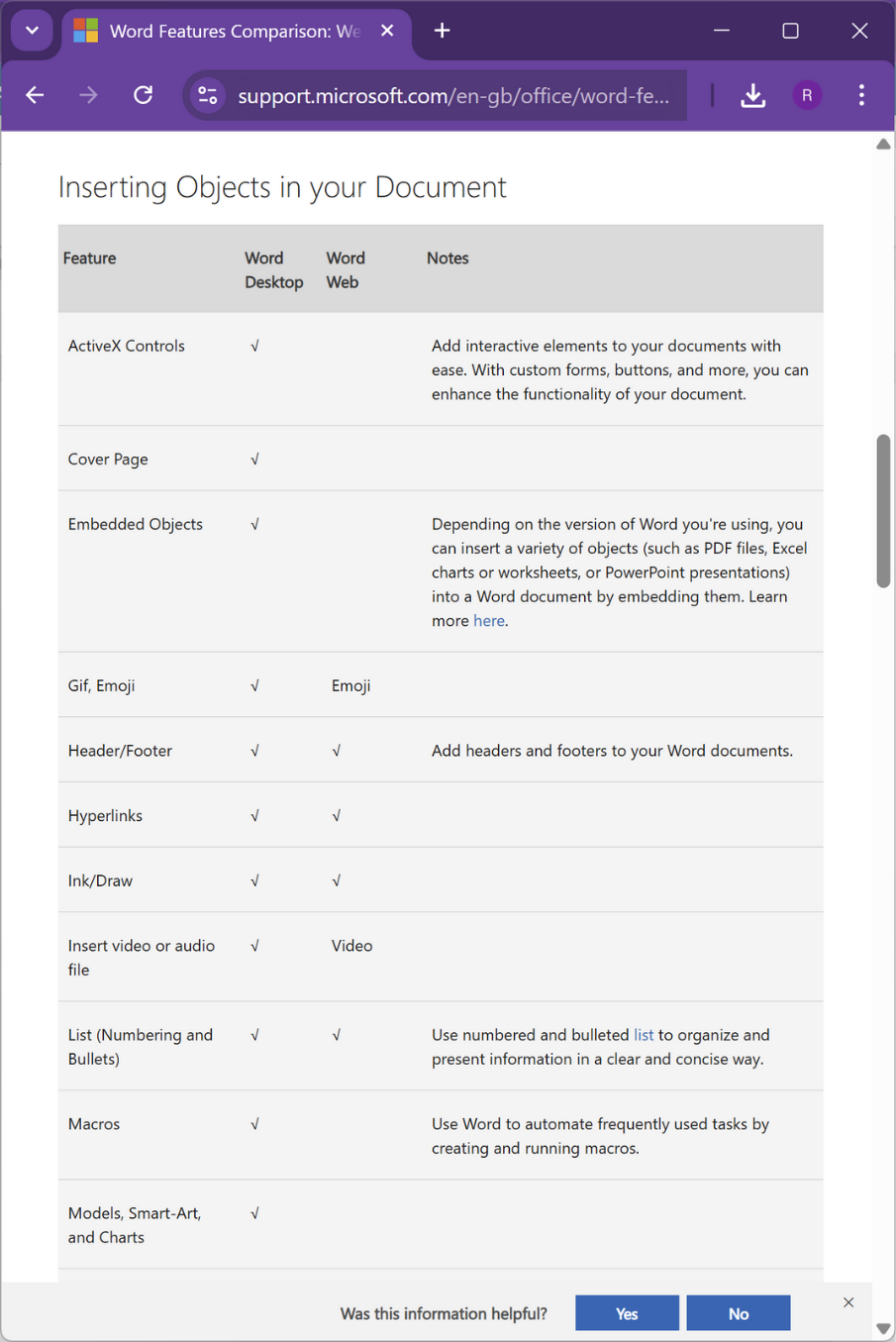
This all means you need a document editor that is as comfortable working with .docx as it is .odt., .pptx or .odf. The good news is Collabora Online natively opens, edits, and saves all major formats, both Microsoft’s and ODF, so you can edit and collaborate freely without conversion headaches.
- ODF formats (.odt, .ods, .odp) are ISO-standardised, open, and widely supported – making them the safest bet for long-term storage and interoperability.
- If you’re exchanging documents predominantly with Microsoft Office users, then .docx, .xlsx, or .pptx may be more practical. Those formats are the default in Microsoft’s ecosystem, and choosing them avoids confusion when sending files back and forth.*
- Legacy binary formats (.doc, .xls, .ppt, .rtf) should be avoided for new work — they’re deprecated and increasingly unreliable.
The takeaway? File formats will keep evolving, but you don’t have to get stuck in the past or tied to a single vendor.
Collabora Online does a better job of handling Microsoft formats than Microsoft does of handling ODF. That means if you stick to ODF in Collabora Online, your documents will remain open, future-proof, and feature-complete – but if you need to share in Microsoft formats, we’re ok with that too, and provide high-quality export options that preserves your work.
The Best of Both Worlds
Get the best of both worlds with Collabora Online!
Try Collabora Online today and experience smooth, format-agnostic collaboration.
File Format Summary
*Collabora Online does a better job of handling Microsoft formats than Microsoft does of handling ODF.
| Name / Type | Extension(s) | Purpose / Usage | Software Used to Access | Notes |
|---|---|---|---|---|
| Plain Text | .txt | Minimal files containing only raw characters | Any text editor (Notepad, Vim, etc.) | Universally readable, but no formatting |
| Microsoft Word (legacy/proprietary) | .doc | Word processing (1983–2007) | Document editors with legacy import filters (Collabora Online, Microsoft Word…) | Proprietary, binary format. Difficult for other apps to fully support |
| Microsoft Word (modern/proprietary) | .docx | Word processing (2007–today) | Microsoft Word, Collabora Online, Google Docs | Based on OOXML. Technically “open,” but complex and not always perfectly interoperable (even within Microsoft offerings) |
| OpenDocument Text | .odt | Word processing (ISO standard since 2005) | Collabora Online, Microsoft Word* | Fully open, great for long-term use |
| Microsoft Excel (legacy/proprietary) | .xls | Spreadsheets (1987–2007) | Document editors with legacy import filters (Collabora Online, Microsoft Word…) | Proprietary, binary format. Difficult for other apps to fully support |
| Microsoft Excel (modern/proprietary) | .xlsx | Spreadsheets (2007–today) | Microsoft Excel, Collabora Online, Google Sheets | Based on OOXML. Technically “open,” but complex and not always perfectly interoperable (even within Microsoft offerings) |
| OpenDocument Spreadsheet | .ods | Spreadsheets (ISO standard since 2005) | Collabora Online, Microsoft Excel* | Fully open, great for long-term use |
| Microsoft PowerPoint (legacy) | .ppt | Presentations (1985-2007) | Document editors with legacy import filters (Collabora Online, Microsoft Word…) | Proprietary, binary format. Difficult for other apps to fully support |
| Microsoft PowerPoint (modern/proprietary) | .pptx | Presentations (2007-today) | Microsoft PowerPoint, Collabora Online, Google Slides | Based on OOXML. Technically “open,” but complex and not always perfectly interoperable (even within Microsoft offerings) |
| OpenDocument Presentation | .odp | Presentations (ISO standard since 2005) | Collabora Online, Microsoft PowerPoint* | Fully open, great for long-term use |
| Portable Document Format | .pdf | Fixed-layout format for sharing/printing | Adobe Acrobat, browsers, Collabora Online (e.g. PDF signing feature) | Excellent for publishing, not for editing |
| Rich Text Format | .rtf | Interchangeable text format (1987–2008) | Collabora Online, Microsoft Word, WordPad | Once popular for compatibility, now deprecated |

